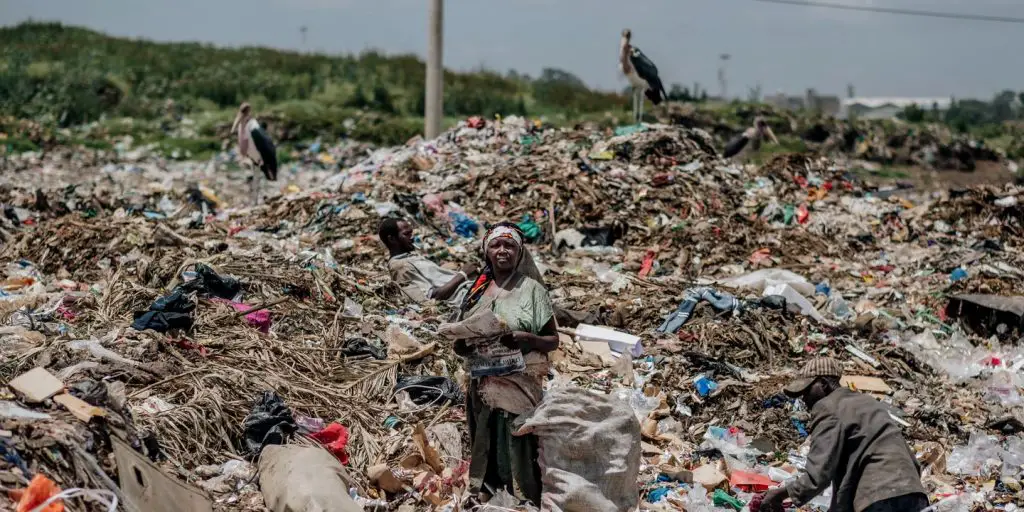Manufacturers turn PRO as US bulldozes Kenya over plastics
In August this year, Kenyans and conservationists everywhere were up in arms after it emerged that the US was arm-twisting Kenya to rescind its tough stance on plastics.
The decision was by the American Chemistry Council which has lobbied the US government during the Covid-19 pandemic to use a US-Kenya trade deal to expand the plastics industry’s footprint across Africa.
According to Greenpeace, documents obtained by Unearthed, it’s investigative journalism platform, show that the same lobby group, which counts Shell, Exxon, and Total among its members, also lobbied against changes to the international Basel Convention, which put new limits on plastic waste entering low and middle-income countries.
Read: KAM, CGK partner to manage post-consumer plastic waste in Kenya
Already, 34 out of 54 countries have adopted some form of regulation to phase out single-use plastic.
Plastic waste management in Kenya
Greenpeace Africa Senior Political Advisor, Fredrick Njehu, says that the Kenyan government should not backslide on the progress made in its plastic-free ambitions by folding to pressure from fossil fuel giants, because it stands to derail the progress made across the entire continent.
While this is brewing, the Kenya Association of Manufacturers (KAM), has launched the Strategic Business Plan for the establishment of a Plastic Producer Responsibility Organization (PRO) in Kenya.
PRO will drive collective Extended Producer Responsibility (EPR) in the country, whereby a producer’s responsibility for a product is extended to the post-consumer stage of a product’s life cycle, whilst turning plastic waste into valuable resources.
The Strategic Plan sets out the direction of KAM’s priorities in the waste value chain and key action in effecting the steps towards a clean Kenya as the industry moves from a linear to a circular economy.
Amb. Maarten Brouwer, the Netherlands Ambassador to Kenya said during the launch of the plan that plastic waste management in Kenya is a daring move to the transition to a circular economy.
“We need to value the role of the private sector towards accelerating circular economy in Kenya. To support these efforts, governments can give financial incentives, invest in research and development and encourage innovation. This shall encourage industries to be willing to learn, explore and experiment with various solutions that can be used to manage waste in the environment,” said Ambassador Brouwer.
He added that sustainability is everybody’s role to play and needs a holistic approach, noting, “By making the collaborative spirit between government and private sector feasible, we shall secure the future of the industry. The waste management challenges we face can be converted into new business opportunities by rethinking materials and redesigning products. This shall reduce operational and energy costs for the manufacturing sector, through sustainable production and consumption.”
Ministry of Environment and Forestry, Director of Environmental Education and Awareness, Dr Ayub Macharia, said, “We championed the development of the framework of cooperation (FOC) between industry and government to monitor the progress of management of PET Consumer Waste. We also supported the launch of the Kenya Plastic Action Plan last year.”
Read also: Chinese tech giant launches in Kenya
He added that the formation of a PRO was informed by the amount of waste in the environment, hence the need to manage it by working with the private sector.
US-made chemicals and plastics
“The lack of an EPR scheme in the country led to low waste collection. This is attributed to inadequate infrastructure in the waste management value chain. The strategic business plan shall guide us in managing post-consumer plastic waste in the country, hence conserving our environment for future generations.”
KAM Chair, Mucai Kunyiha observed that the local manufacturing sector is committed to and is at the forefront of driving the establishment of a circular economy, towards sustainably managing waste, and conserving and restoring our environment.
“The Plan’s focus areas to accelerate a circular economy are to increase collection and recycling simultaneously through creating value and markets for the recycled plastics, enhance industry awareness on sustainable sourcing and production and develop products designed for recyclability. We are optimistic that Kenya will achieve its targets of being “a Green Hub” within the region by cementing Kenya’s leadership in matters Climate Change and the Green Economy,” concluded Kunyiha.
The launch of the Strategic Business Plan for a PRO is in line with commitments made in the Kenya Plastic Action Plan, launched last year. The Plan seeks to enable a circular economy for the environmentally sustainable use and recycling of plastics in Kenya.
PRO has been developed by KAM in partnership with Sustainable Inclusive Business under the KEPSA Foundation and the Embassy of the Kingdom of the Netherlands.
It is interesting to see how the US plan will play out in Kenya.
Greenpeace notes that the ACC wrote to US Trade Representative officials, stating, “Kenya could serve in the future as a hub for supplying US-made chemicals and plastics to other markets in Africa through this trade agreement.”
The ACC also calls for the lifting of limits placed on the plastics waste trade, which experts believe would circumvent the new Basel Convention rules.
In a separate letter to the Chairman of the US International Trade Commission, the ACC states that the trade agreement will be an “important model” for other African states. The letter reads, “With this foothold, the United States can play an influential role in shaping trade policy across Africa,” and that it will enable the US to “build a platform for US chemical manufacturers to expand exports to enter new growth markets throughout sub-Saharan Africa.”
